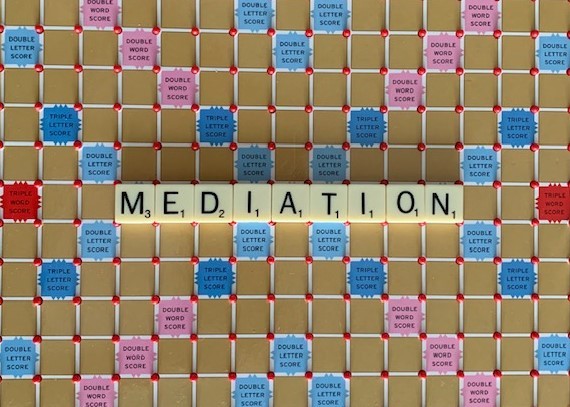Mediation

The Mediation Process
One of the options available to parties involved in a dispute is resolution through mediation. Many people are attracted to this option because they retain control over the negotiations and outcome; in addition, it is usually fast and certainly less expensive than arbitration or litigation.
The confidentiality and neutrality of the Ombuds Office offer a non-threatening setting for mediation. We provide a framework in which the disputing parties voluntarily negotiate their own settlement. All sides must be willing to participate in the mediation in good faith. As the mediators, we are neutral, and we do not adjudicate. We have no decision-making authority. We do not judge the fairness of the settlement reached. We merely facilitate the communication and resolution process, assisting the disputing parties’ search for a joint solution to meet their needs and satisfy their interests.
Though each mediation experience is different, they all follow a basic pattern. We may first meet with the disputing parties individually. The first meeting of all parties begins with a review of the procedures to be followed. Each party has the opportunity to present his or her view of the situation without interruption. We assist the parties in identifying the issues by asking clarifying questions, taking notes, or helping to focus the discussion. We help them explore the needs that must be met by the solution. Once the interest and needs of each party have been stated, the negotiation searches for common ground; problem-solving options are explored and eventually possible resolutions are discussed.
When general agreement has been reached, and if the parties agree that a written statement of the settlement is helpful or appropriate, we work with them to draft a “memorandum of understanding.” If appropriate and if all parties agree, they may include in the settlement the right for each side to have his or her respective advisors or legal counsels review the document before it becomes effective. If upon reflection any party wishes to modify the agreement, revisions can be negotiated through shuttle diplomacy or subsequent meetings. The parties themselves agree on a date after which the agreement will take effect, usually within two weeks of its being signed. The parties hold copies of the agreement.
Any party is free at any time to withdraw from the mediation process. If a settlement is not achieved, the parties may pursue other means of dispute resolution, including formal administrative channels. By using mediation, one does not forfeit other rights if the mediation is unsuccessful.
Adherence to the settlement terms depends on the good faith of the signatories. The Ombuds Office has no enforcement power. Our responsibility to the disputing parties includes maintaining confidentiality regarding the content of the discussions and the settlement. We do not keep notes or records, and we do not report the substance of the process without permission.
Mediation is powerful because the process is collaborative and the parties assume responsibility for finding their own resolutions. Through the process they usually gain increased understanding of each other, and respect for other points of view. Moreover, in contrast to more litigious forms of dispute resolution, which are constructed on a win-lose basis, all parties in a mediated settlement stand to gain.
© 2003 Marsha L. Wagner, Columbia University adapted with permission
